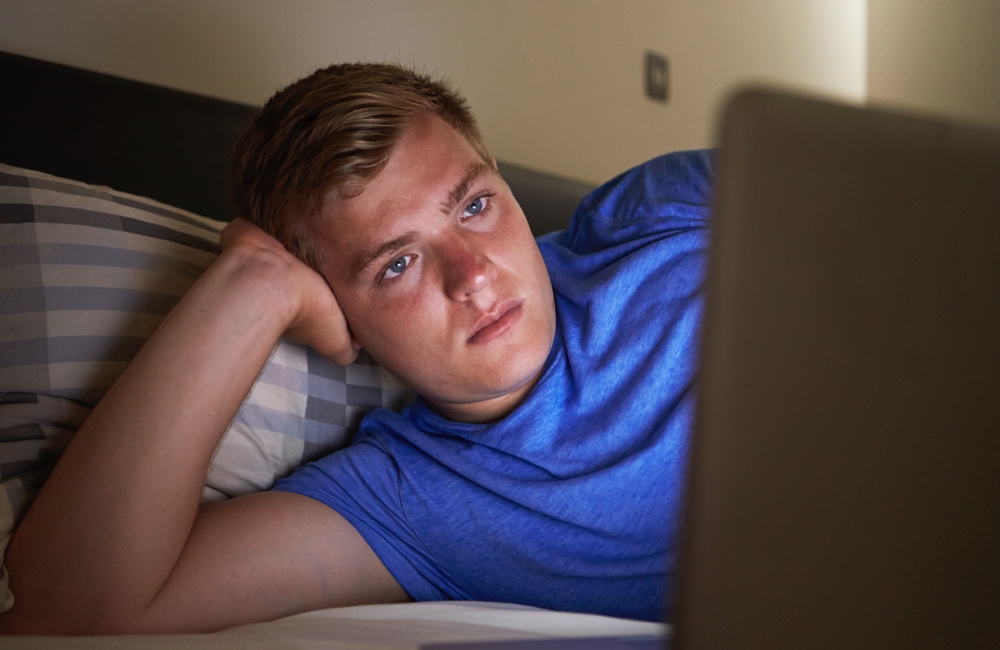If you’re a night owl, shifting your bedtime so you fall asleep a little earlier could reduce your risk of depression by nearly 25 percent. The tendency to sleep late or get up early — to be a night owl or early bird — is a product of biorhythms connected to a range of processes within your body. This chronotype, as it is called, is also a major factor in health, affecting the heart, metabolism and, a study finds, the risk of depression.
Regardless of how long they sleep, night owls are as much as twice as likely to suffer from depression as early risers. But since disrupted sleep is also a symptom of depression, researchers have found it difficult to figure out exactly what causes what — is depression disrupting sleep, or are sleep problems triggering mood disorders?
The new study offers some of the strongest evidence yet that a person’s chronotype influences their risk of depression. Unlike earlier studies that tended to have small sample sizes, relied on answers to questionnaires taken at a single point in time, or lacked information on environmental factors that could potentially skew the results — such as shift work, a new baby or health issues — that could affect the timing of sleep and mood, this one relied on a large sample of genetic data. Since genes are distributed at birth, environmental effects play little or no role in the genes a person carries.Do those with genetic variants which predispose them to be early risers also have lower risk of depression? The answer was a firm yes.
The researchers, from the Broad Institute of MIT and Harvard, as well as CU Boulder, used de-identified genetic data from nearly 850,000 individuals provided by the DNA testing company 23 and Me and the biomedical database UK Biobank, including data from 85,000 people who had worn wearable sleep trackers for seven days and 250,000 who had filled out sleep-preference questionnaires. These last two sources gave them a picture, down to the hour, of how variants in genes influence when we sleep and wake up.
Roughly a third of the people surveyed identified as early risers, 9 percent said they were night owls and the rest were in the middle. The average sleep mid-point was 3 a.m., meaning most people went to bed at 11 p.m. and got up at 6 a.m.Having a sleep midpoint that was an hour earlier corresponded with a 23 percent lower risk of major depressive disorder.
With this information in hand, the researchers turned to a different sample which included genetic information along with anonymized medical and prescription records and surveys about diagnoses of major depressive disorder. Using statistical techniques designed to help analyze the relationship between genetic variants associated with a risk factor like later sleep times and potential causal effects on disease outcomes such as depression, they asked: Do those with genetic variants which predispose them to be early risers also have lower risk of depression? The answer was a firm yes.
Whether people who are already early risers could benefit from getting up even earlier is not clear, but shifting to an earlier bedtime would likely help those who tend to go to bed around midnight or later lower their risk of major depression.
There are a number of likely explanations for these results. Less exposure to daylight can bring on depression, while more sun exposure can improve mood.
We are also, by and large, an early-riser world. Most work starts well before noon and having a biological clock, or circadian rhythm, that trends differently from most peoples' can be difficult and potentially depressing.
A randomized clinical trial will be needed to definitively prove that going to bed early can reduce depression, explained Iyas Daghlas, the study’s lead author and a Broad Institute researcher who recently graduated from Harvard Medical School. But “this study definitely shifts the weight of evidence toward supporting a causal effect of sleep timing on depression.”
The study is published in JAMA Psychiatry.





